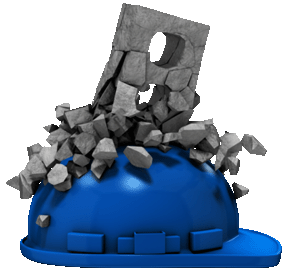|
Safety & Job Burnout
 You want your employees to always be safe and to do the correct thing, right? As an employer, who doesn’t? You want your employees to always be safe and to do the correct thing, right? As an employer, who doesn’t?
But providing training and instilling every best practice there is won’t protect workers from the most common cause of injury — mistakes due to safety burnout. Not only is the burnt-out employee susceptible to injury, but everyone they are working around is too!
Warning Signs of Burnout
Burnout is the result of someone’s attempt to cope with overwhelming and prolonged stress or discontentment, and it doesn’t happen overnight. There are warning signs to be on the lookout for.
- Complacency is a significant indicator of safety burnout and an injury or accident could be imminent. Do employees ever say, “We’ve always done it this way” or “That’s close enough?”
- Breaking the rules is another sign to watch out for. Are the comments, “The boss isn’t around to see” or “We were just kidding around” ever heard? If so, management must reinforce that rules need to be followed all the time (no matter who is/isn’t around); management must also take disciplinary actions in response to safety infractions.
- Employees’ moods and attitudes can be a big indicator of burnout, so attention should be paid to them both. Do certain team members seem disengaged, unmotivated or express a negative and critical attitude at work? Have other employees complained about certain co-workers or voiced concerns?
Identifying Burnout
Burnout can be identified by three signs, which can be measured by a version of the Maslach Burnout Inventory (MBI). It includes questionnaires/surveys that address these general areas:
- Emotional Exhaustion – Measures feelings of being emotionally overextended by one's work; physical exhaustion and cognitive fatigue are often present too
- Depersonalization – Occurs when others are perceived as or treated as ‘objects’ instead of valued individuals
- Personal accomplishment – Measures feelings of competence and successful achievement in one's work
The MBI surveys can be purchased from various websites and easily completed by employees. The scores will help determine if someone is currently burned out or the likelihood of it happening soon. This information can be very helpful so changes can start happening before it’s too late.
Effects of Burnout
The consequences of burnout can be severe for both employers and their employees.
- Job burnout increases the chances of an accident/injury both on and off the job. The effects of stress or burnout on the job can also carry over to someone’s personal life outside of work.
- Numerous studies indicate that burnout increases absenteeism and turnover. This can lead to staffing challenges, impact employee morale, and create safety concerns.
- Burnout can cause a variety of health problems including sleeplessness, physical ailments and illnesses, depression and even substance abuse.
- Productivity can drop and creativity can also be affected.
Avoiding Burnout
As an employer, being mindful of preventing burnout among your employees should be very important. After all, without your employees, how strong of a company do you really have?
- Have regular employee meetings to communicate necessary information and make sure everyone is on the same page and feels included.
- Do employees ever speak up about concerns and/or make suggestions? Let them know their input is valued and make them a part of creating a safe environment. Instill the attitude of, “If you see something wrong – say something.”
- Have an open-door policy and encourage employees to speak to management about concerns or problems. Nip them in the bud early before they fester and lead to bigger issues, including burnout.
- Frequently take a look at workloads or job responsibilities and make adjustments as situations change. Consider whether the volume of work has grown to the point that you may need to hire more staff or employ a temporary worker(s) to avoid burning out your current employees.
Job burnout and safety burnout are closely related and both are equally important. If an employee is burned out with their job it will affect most every aspect of their work and those around them, plus vital areas like safety will be compromised.
|